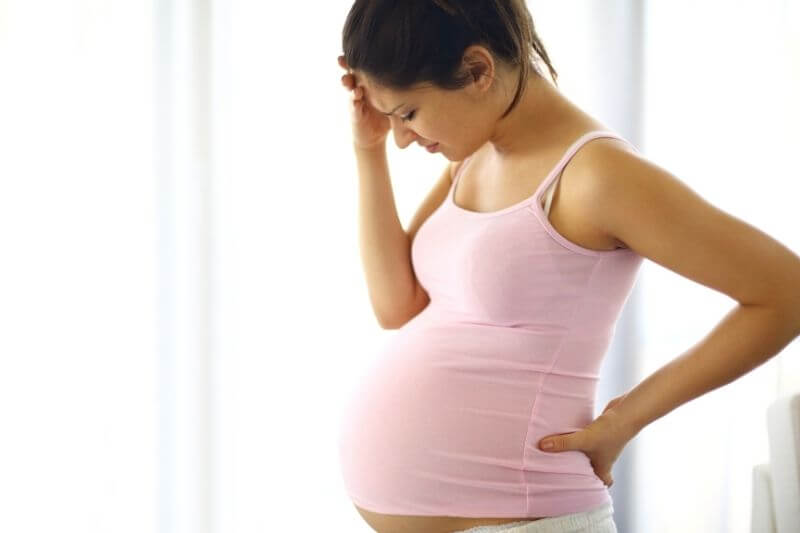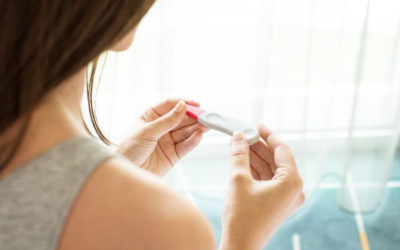Anaemia in pregnancy is a common occurrence and can often be the cause of extreme tiredness at around 28 weeks. The reason it is so common, is that during pregnancy your body increases it’s blood volume by up to 30 to 50% to provide adequate nourishment to your growing baby.
What is anaemia?
Iron deficiency anaemia is a condition caused by a lack of red blood cells or haemoglobin. In the UK, the most common reason for developing anaemia is not having enough iron.
Haemoglobin is a protein found in red blood cells. It traps oxygen from the lungs and carries it around the body. A key ingredient used to make haemoglobin is iron. If there isn’t enough iron stored in the body, then the amount of haemoglobin drops. When this happens, less oxygen can be carried in the blood.
Why does anaemia occur in pregnancy?
Anaemia is very common in pregnant women as …… In fact, over 20% of pregnant women in Europe are anaemic during pregnancy! This is why you are screened for it at both the initial booking appointment and again at 28 weeks.
It can be caused by any of these reasons:
- there might not be enough iron in your diet
- your gut may not absorb enough iron from your food (even if you have an iron-rich diet)
- your iron requirement might be so high that you can’t get enough from your diet (your baby needs a lot of extra iron when it’s growing in the womb. It gets the iron from you, which means that your own iron stores can become lower)
- you may lose iron through bleeding, such as by having heavy periods before pregnancy, or because you have another medical condition.
You may also be at a higher risk of developing anaemia in pregnancy if you :
- already having low iron stores before becoming pregnant
- have a pre-existing blood condition, such as sickle cell disease and thalassaemia
- have an inflammatory disorder which affects the gut’s ability to absorb iron from food. Examples of these include inflammatory bowel disease, coeliac disease, and previous surgery to the gut.
- have a higher demand for iron, such as having twins or triplets
- are under 20 years old when you become pregnant
- give birth to your previous child less than 1 year ago
- have anaemia in a previous pregnancy.
You may also be at risk of becoming anaemic after giving birth. This is often due to losing blood during or shortly after giving birth.
What are the effects of anaemia in pregnancy?
The symptoms of anaemia during pregnancy are:
- Tiredness
- breathlessness
- heart palpitations or chest pain
- weakness
- headaches or dizziness
- irritability

It is associated with a range of problems for both the mother and the baby.
Iron deficiency anaemia can affect your muscle function, ability to exercise (such as climbing the stairs) and gut function. In pregnancy, iron deficiency also increases the risk of having a low birth weight baby and a premature delivery.
After giving birth, iron deficiency anaemia can also affect you by causing tiredness and reducing your milk production. It is also associated with postnatal depression. Your baby may have low iron stores at birth too.
Another reason why we will want to treat your iron deficiency anaemia is to reduce the risk of you needing a blood transfusion during or after delivery. Giving birth often involves some bleeding.
How is anaemia treated?
If you are less than 36 weeks pregnant, your GP will usually give you a course of iron tablets. They will then arrange to see you again in 2-4 weeks’ time, to recheck your haemoglobin level. If the iron tablets work properly, your haemoglobin should increase.
If you are more than 36 weeks pregnant, there may not be enough time for iron tablets to work before your baby is born. In this situation, you might need to be given iron directly into your bloodstream. This is called intravenous iron (IV iron).
Top 5 ways you can increase your iron levels naturally
There are ways you can help boost your iron levels through your diet.
- Eat more iron-rich foods like dark leafy vegetables like spinach and watercress, pulses, fortified cereals and breads, nuts, red meat, fish and poultry.
- Eat less wholegrain cereals.
- Drink less tea and coffee.
- Increasing your Vitamin C level through a supplement or eating foods such as citrus fruits, strawberries, tomatoes and peppers, can aid the absorption of iron from food.
- Eat chocolate – it must be plain, dark chocolate, but if ever there was an excuse right?!

More Information
For more information, the best person to speak to is your doctor (obstetrician or GP) or midwife.











0 Comments